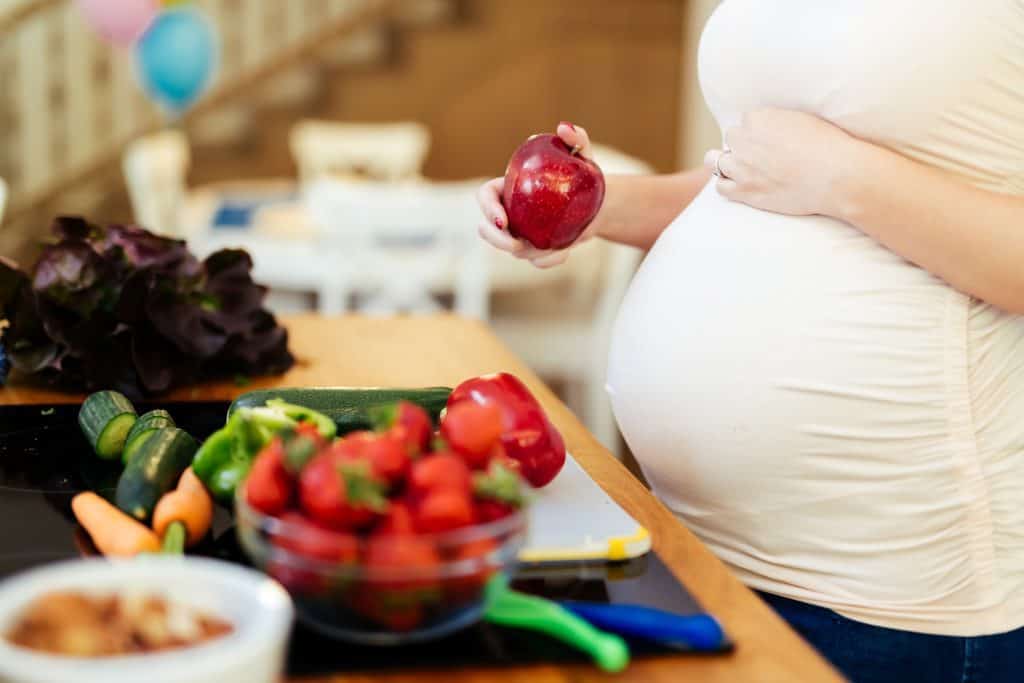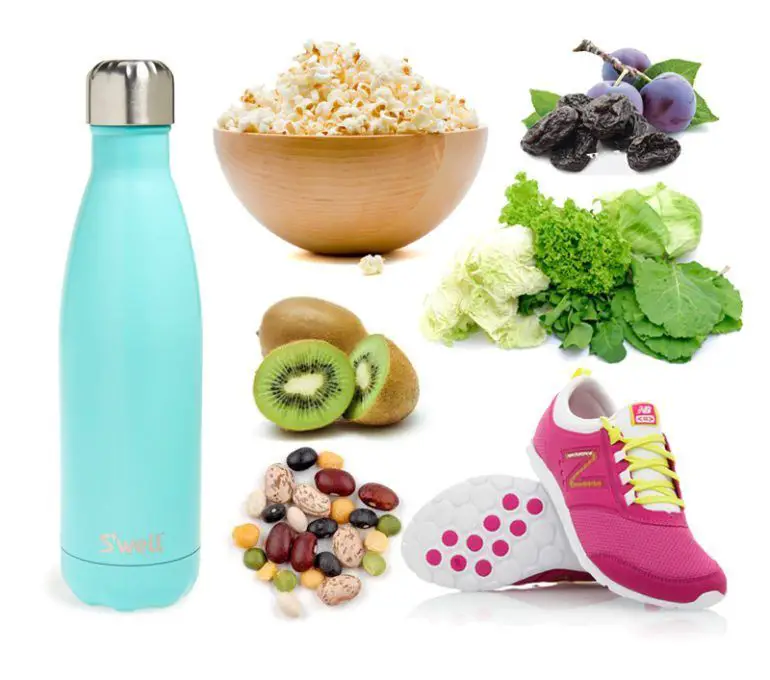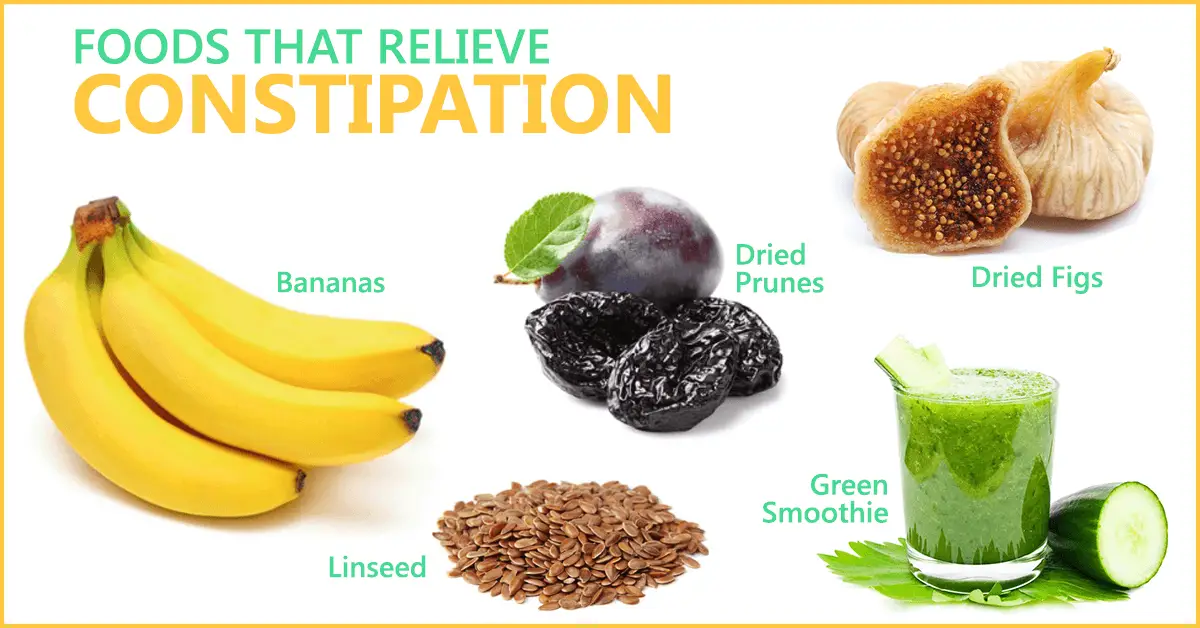Tips To Prevent Constipation During Pregnancy
Constipation is difficulty having regular bowel movements . It is a common symptom of pregnancy. However, you do not necessarily have to suffer from constipation or irregular, hard bowel movements, and the pain associated with them when you’re pregnant.;There are things you can do to keep things moving along and prevent constipation during pregnancy.
Here Are Some Tips For Easing Constipation During Pregnancy
Eat high-fibre foods such as whole-grain cereals and breads, brown rice, beans, and fresh fruits and vegetables every day. Adding a couple of tablespoons of unprocessed wheat bran to your cereal in the morning and following it with a glass of water can help. Be patient as it may take a few days before you notice a difference.
Dont forget to drink plenty of water. Try to drink 10 cups of water or other beverages every day. Your urine should be clear or pale yellow a sign of proper hydration. You can always try some prune juice. Some people find that drinking a warm beverage right after waking up helps too.
Iron can cause constipation. You may want to check with your health care provider about switching to a supplement with less iron.
Another pregnancy tip: your bowels are most likely to be active after meals, so make time for the bathroom after you eat. Listen to your body. Never put off going to the bathroom when you feel the urge.
Moving might also help to get things moving. Exercise regularly. Walk, swim, ride a stationary bike, and do yoga. All of these can help ease constipation and leave you feeling more fit and healthy. And if none of the above helps, talk to your doctor about taking an over-the-counter fibre supplement or stool softener. Do not use a laxative without checking with your doctor or nurse first. Laxatives can trigger the onset of labour contractions.
Best Foods To Relieve Constipation Quickly
Constipation, Although embarrassing, is a common problem faced by approximately 20 percent of the population irrespective of gender and age. Many of us are uncomfortable discussing this topic, but awareness and early intervention are crucial in relieving constipation. This article discusses the importance of the foods you add to your diet for constipation and how simple changes can drastically change how your digestive system works and help you poop without difficulty.
Don’t Miss: What Causes Spotting In Early Pregnancy
What Can I Do About Constipation When I’m Pregnant
You don’t have to resign yourself to nine months of discomfort. There are plenty of tactics to combat colon congestion :
What to Expect selects products based on independent research;and suggestions from our community of millions of parents; learn more about our review process. We may earn commissions from shopping links.
Adjusting Your Diet To Prevent And Treat Constipation

Dietary problems are the most difficult to deal with, as people have been told so many different stories about what constitutes a good diet.
Youve likely already received well meaning advice from friends, relatives and others, which may have you in a bit of a pickle about what you should be eating.
Whether you are vegetarian or a meat eater, your daily pregnancy diet should contain:
- A good amount of protein
- At least several cups full of raw and cooked green veggies
- As many coloured veggies as you can
- Some fruit
- Good quality dairy for calcium supplemental calcium if you cant eat dairy
- Around 6 tablespoons of saturated fats in the form of virgin coconut oil, butter, animal fats
- Around 4 tablespoons of monounsaturated fats such as avocado, olive oil, nuts and nut oils;
- About 2 teaspoons of polyunsaturated oils such as cod liver oil, flax oil, evening primrose oil, blackcurrant oil or borage oil
In total, the calories should add up to around 2,600 for both a pregnant and nursing mother. If your diet has enough of the foods above and in the right proportions, it should prevent constipation.
The Aborigines, First Nation Native Americans and Eskimos all praised eating enough fats to help keep the bowels moving. Their diets were low in carbohydrates, but as long as they had enough fats, it wasnt a problem. Do avoid heat processed oils such as rice bran, canola, rapeseed, soy, and oils labelled as vegetable, as they are rife with carcinogens which cause cancer.
Don’t Miss: How Soon Can You Get Pregnant After Your Period Ends
How To Manage Constipation In Pregnancy
Nearly three out of four women experience constipation and other bowel disorders during their pregnancies. Heres how to handle it.
Noticing a flutter or two in your belly lately? It’s not necessarily your baby kicking. Thanks to pregnancy hormones and an enlarged uterus, you might start feeling bloated, constipated, and generally uncomfortable. Constipation can also lead to hemorrhoids, another common side effect of pregnancy. Here’s how to manage and prevent constipation while expecting.;
What Are Some Natural And Herbal Remedies At Home
Constipation can be described as a problem that results from less bowel movement and difficulties in the elimination. It is a very common digestive issue. The foods that help treat constipation are shelled apples and spinach, as well as cabbage leeks, figs, figs grapes, olive oil the flax seed, and oatmeal.
Here are natural and natural remedies for constipation at home.
- Consume probiotic-rich foods.
- Consumption of greens, including spinach,
Don’t Miss: What To Expect When 10 Weeks Pregnant
How Does Pregnancy Affect Gut Motility
Pregnancy causes a lot of changes in a woman’s body, including an increase in the hormone progesterone. Rising levels of this hormone can slow down gut motility, which is how fast your food and stool move through your intestinal tract. This slowdown can lead to constipation, or trouble passing a bowel movement. It may also mean you don’t have as many bowel movements as normal.;
Constipation In Pregnant Women And Children
Constipation is one of the most common side effects of pregnancy, next to morning sickness and hypersensitivity to smells. In the vast majority of cases, there is nothing to worry about: the causes of constipation during pregnancy are completely natural and not serious. Nonetheless, this digestive disorder remains unpleasant…
What explains constipation in pregnant women?Around one in two pregnant women suffer from constipation. It often occurs from the first trimester onwards, even in women who usually have no intestinal transit problems. Strange? Not really, when you consider that pregnancy is a time of significant physiological and hormonal changes. Some of them help the embryo and then the foetus develop correctly. Others prepare the body for childbirth…
Among all these changes, increased progesterone levels can cause constipation during early pregnancy. This hormone can reduce the contractions of smooth muscles, such as the muscles of the digestive tract or uterus, which are beyond our control. Progesterone plays a key role because, by preventing uterine contractions, it reduces the risk of miscarriage and premature birth. The only problem is that it also affects the smooth muscles of the colon. Hence a slowing of intestinal transit during pregnancy…
To get enough fibre, which is good for your intestinal transit, prioritise fresh fruit, dried fruit, greens, legumes and whole grains in your diet. Prunes in particular are among the best laxative foods.
Read Also: Is Fatigue An Early Sign Of Pregnancy
Constipation Due To Diet
Its important to understand that refined flour products such as pasta, bread, cakes and pastries, or refined white rice, have lost most or all of their fibre. Just like when you remove the skin from an apple, it takes away much of the goodness and you feel less full.
Refined flour products dont move through the digestive tract very easily. Refined foods cause constipation by absorbing any liquid that you drink, and creating a plaster-like substance which makes your bowels become stretched. It can exacerbate the issues when you have hormonal changes on top of that.
Avoiding grains can significantly help with digestion, inflammation, blood sugar levels and weight gain. After all, livestock are fed grains to fatten them up!
Can Constipation Hurt The Baby
Many pregnant women who experience pain from constipation will have this concern, but constipation in pregnancy will not hurt your baby.
Another good thing to know if you do end up using a OTC laxative : most laxatives are not well absorbed into body and have not been shown to be a risk to the baby.
The real concern is for the mother herself, not the baby. In some cases, pregnancy constipation can lead to more uncomfortable and serious symptoms of pregnancy, including hemorrhoids, rectal bleeding, fecal impaction, and rectal fissures. Oh, the joys of pregnancy! But take heart, most moms find relieve to their constipation in pregnancy with natural remedies.
Treatments For Constipation During Pregnancy
Home remedies for constipation during pregnancy include lifestyle changes or over-the-counter medications. The following treatments may help relieve constipation symptoms:
Increase dietary fiber and water
A diet that is low in fiber can contribute to constipation. The two types of dietary fiber are:;
- Soluble Fiber, which blends with water in the intestines and forms a gel-like substance. This type of fiber helps control blood sugar.;
- Insoluble Fiber, which passes through the intestines without being absorbed. It increases the size of your stool and can help you pass it more quickly.;
Increasing the fiber in your diet should be the first step in treating constipation during pregnancy. Foods high in fiber include:
- Bran cereals
- Nuts
- Quinoa
In addition to increasing fiber, increasing your water intake can help with constipation. Women who are pregnant should drink 10 8-ounce glasses of water daily.;
A sedentary lifestyle increased the risk of constipation. Increasing your daily exercise can help with constipation. Walking more is one of the best ways to increase your exercise during your pregnancy. It is very low risk and can help with constipation.
Laxatives
Stool softeners
Stool softeners containing docusate sodium are safe to take during pregnancy.;;
Lubricant laxatives
Lubricant laxatives such as mineral oil work by coating your stool and digestive tract with a waterproof layer. It keeps water in the stool which makes it softer and easier to pass.
Guidance On Managing Constipation

The first-line treatment for constipation is increasing dietary fibre and fluid intake. Dietary fibre intake can be improved by eating more wholegrain foods, fruit and vegetables, or through wheat or bran fibre supplementation. Where fibre supplementation does not alleviate symptoms, laxatives may be helpful in the short-term, although they can cause adverse side effects such as abdominal pain and diarrhoea.
What Are Some Of The Problems Related To Constipation During Pregnancy
Constipation can lead to other complications including:
Haemorrhoids or piles;;straining to move your bowels could cause swelling in the veins in and around the anus.;Ask your GP or pharmacist about options for treating your haemorrhoids
Anal fissure;;a big or hard stool can cause small tears in the anus. Treatment depends on the severity of the fissure and should be discussed with a healthcare professional
What Is The Reason For Constipation In Children And What Causes It
Constipation, which can be seen by almost all and is especially prevalent in children. Childrens constipation is caused through eating foods that are high in sugar and not drinking enough fluids or avoiding going to the bathroom and stress, mental health issues and excessive cows milk, and taking fast meals.
Because children are mobile in nature, they are able to deal with constipation if they consume nutritious. Dry fruits and meals made from them should be eaten. Avoid soft drinks as well as black tea, coffee and other soft drinks.
What can cause constipation in pregnancy? How do you get rid of it?
Changes in hormones and body composition in pregnancy can trigger constipation. It is suggested that pregnant women consume nutritious meals and exercise for minimum 45 minutes each day. To ease constipation during pregnancy, the practice of eating more frequently and eating less is recommended. Fruits, red and cereals can be an answer to constipation.
Two liters or more of water are recommended each day to avoid constipation. Homemade juices like homemade iced teas, homemade iced coffees or lemonade made from scratch can be more appealing. In terms of fluid intake carbonated drinks and caffeinated drinks are not recommended.
Why Pregnancy Can Make You Constipated
Pregnancy and constipation are closely related. The same hormones that help your body adjust to carrying a baby by expanding your uterus could also be relaxing your intestinal muscles and causing difficulties in the bathroom. Combine that with an increase in stress, anxiety, and getting less physical exercise than youâre used to, and thatâs a recipe for pregnancy constipation.
You may also be experiencing constipation during your pregnancy if your healthcare provider has prescribed you iron pills, which are known to cause constipation. If youâre taking iron, talk to your healthcare provider about constipation relief.
Feel lighter & energetic**
Lemon Or Peppermint Essential Oil
Aromatherapy massage using peppermint or lemon essential oil may help soften fecal impaction and treat constipation .
You Will Need
- 1-2 drops of lemon/peppermint essential oil
- 1 teaspoon of any carrier oil
What You Have To Do
How Often You Should Do This
Do this once a day.
The Link Between Constipation And Hemorrhoids
On its own, pregnancy increases your risk of swollen veins around your rectum. “But if your stool is uncomfortable to pass and you’re straining to do so, it can make hemorrhoids worse,” says Shari Brasner, M.D., assistant professor of obstetrics and gynecology at Mount Sinai School of Medicine, in New York City, and author of Advice from a Pregnant Obstetrician “This is serious, because they can be with you for life.” You can prevent pregnancy hemorrhoids by managing constipation, using the tips below.;
- RELATED: Whats Up With Pregnancy Hemorrhoids?
What Are The Signs And Symptoms Of Constipation
Constipation symptoms are abdominal distension, difficulty breathing, and severe abdominal pain. Constipation is a common occurrence among people who drink little liquid and water and those who dont consume fibrous foods pregnant women, people suffering from bowel cancer, as well as those suffering from intestinal disorders.
What Causes Pregnancy Constipation
The increasing level of progesterone hormone in pregnancy slows down the functioning of the gastrointestinal system, resulting in constipation.
Constipation and discomfort are higher in early pregnancy due to the backward tilting of the womb until about 12 weeks and a sudden change of progesterone level in the blood.
During the second and third trimesters, the pressure exerted by the growing womb on your bowels will intensify the problem. Also, consumption of iron and calcium supplements, low-fiber diet, lack of exercise, dehydration, worry, and anxiety might cause;or contribute to constipation. The rare and most severe causes include hemorrhoids and anal fissures .
Best Foods For Constipation During Pregnancy

- Drink more fluids – increasing the amount you drink helps make feces softer and easier to eliminate. This is just as important as increasing your intake of dietary fiber. Drink 6 to 8 glasses of liquid each day.
Alcohol, coffee, soda pop and other fizzy drinks tend to be dehydrating. Tea, which contains less caffeine, is a better option than coffee. Better still are fresh juices, especially vegetable juices, herbal and fruit teas, soups and, of course, water. Drink 6 to 8 glasses per day.
- Increase the amount of fiber in your pregnancy diet. Whole-grain breads, cereals, and bran are helpful. Begin by adding 2 teaspoons of bran to your foods.
Some initial discomfort may be normal, especially if you don’t normally consume much fibre. If you add too much all of a sudden, you may get a lot of bloating and gas. So increase the amount gradually and don’t forget to increase the amount of liquid as well. Too much fibre without adequate amounts of water can actually make constipation worse.
- Eat fresh and dried fruit such as prunes, raisins and figs.
- Eat fresh vegetables and salads containing a variety of raw green and coloured vegetables daily.
- Eat foods rich in calcium and magnesium.
|
Magnesium-rich foods include: |
|
|
Will It Continue After Ive Had The Baby
There are several reasons why constipation may continue after birth. Women who have had a caesarean often experience constipation for a few days until their regular bowel movements return. Women who have stiches after a vaginal birth may hesitate on the toilet, which can cause a build-up in their bowels.
If youve taken strong pain medication after having your baby this may also cause constipation.
New mothers are often busier than usual in the first few weeks and months of motherhood. It may seem like taking care of yourself has become less of a priority, but your health is no less important now than it was during your pregnancy. Be sure to have plenty of fibre-rich fruit, vegetables, and wholegrains as well as increase your fluid intake while breastfeeding to encourage healthy bowel movements, even when you are busy.
Constipation Remedies During Pregnancy
If you find yourself having difficulty going to the toilet, you may need to try these ten pregnancy-safe remedies to get things moving again.
Editor’s Note:

